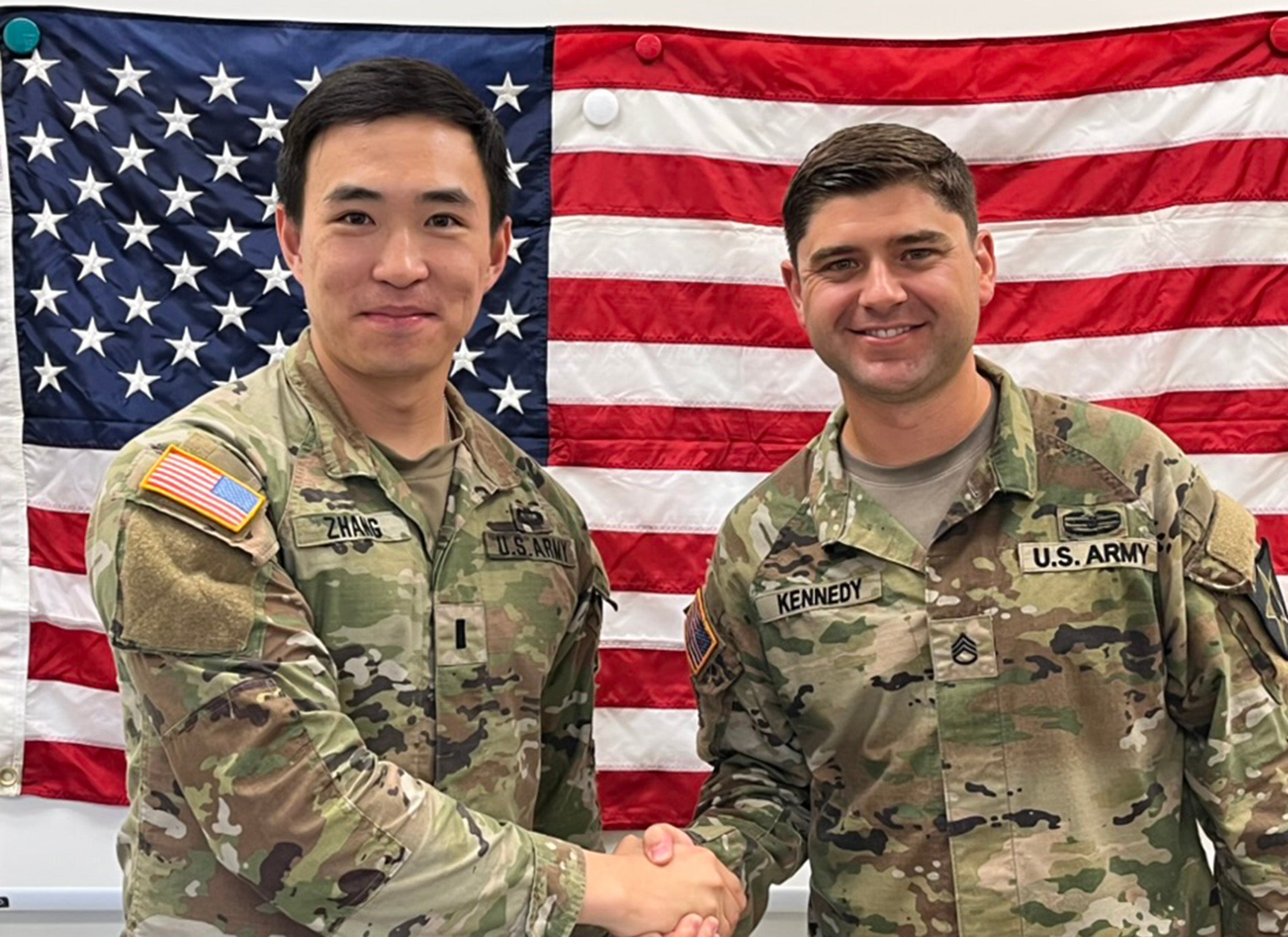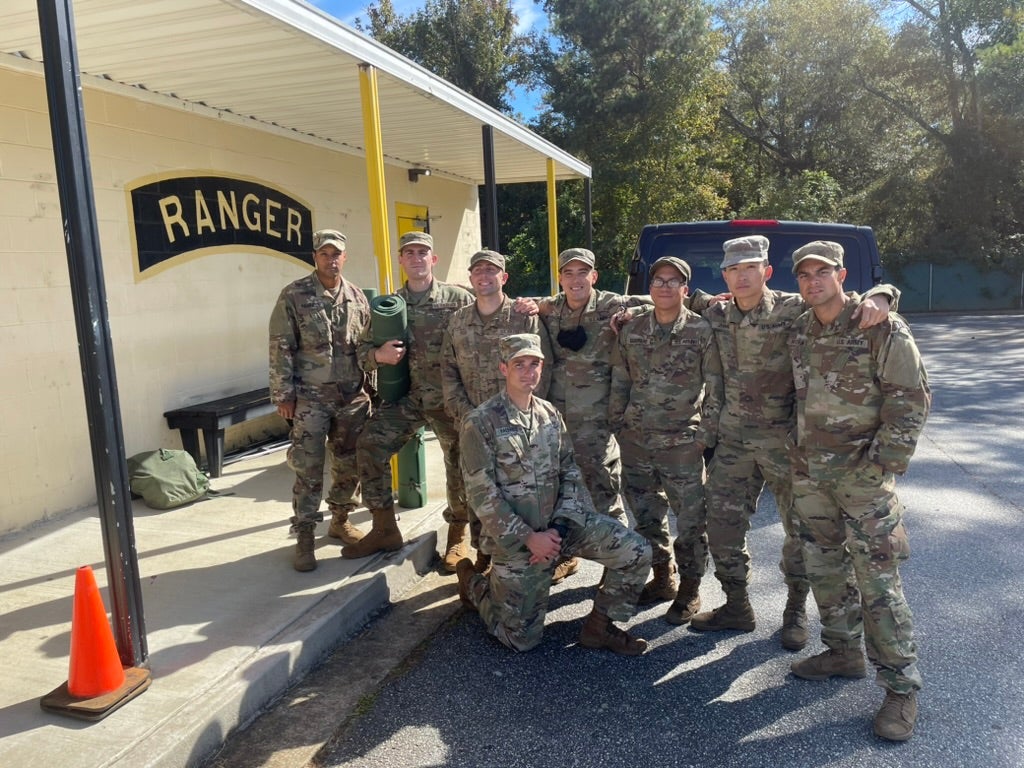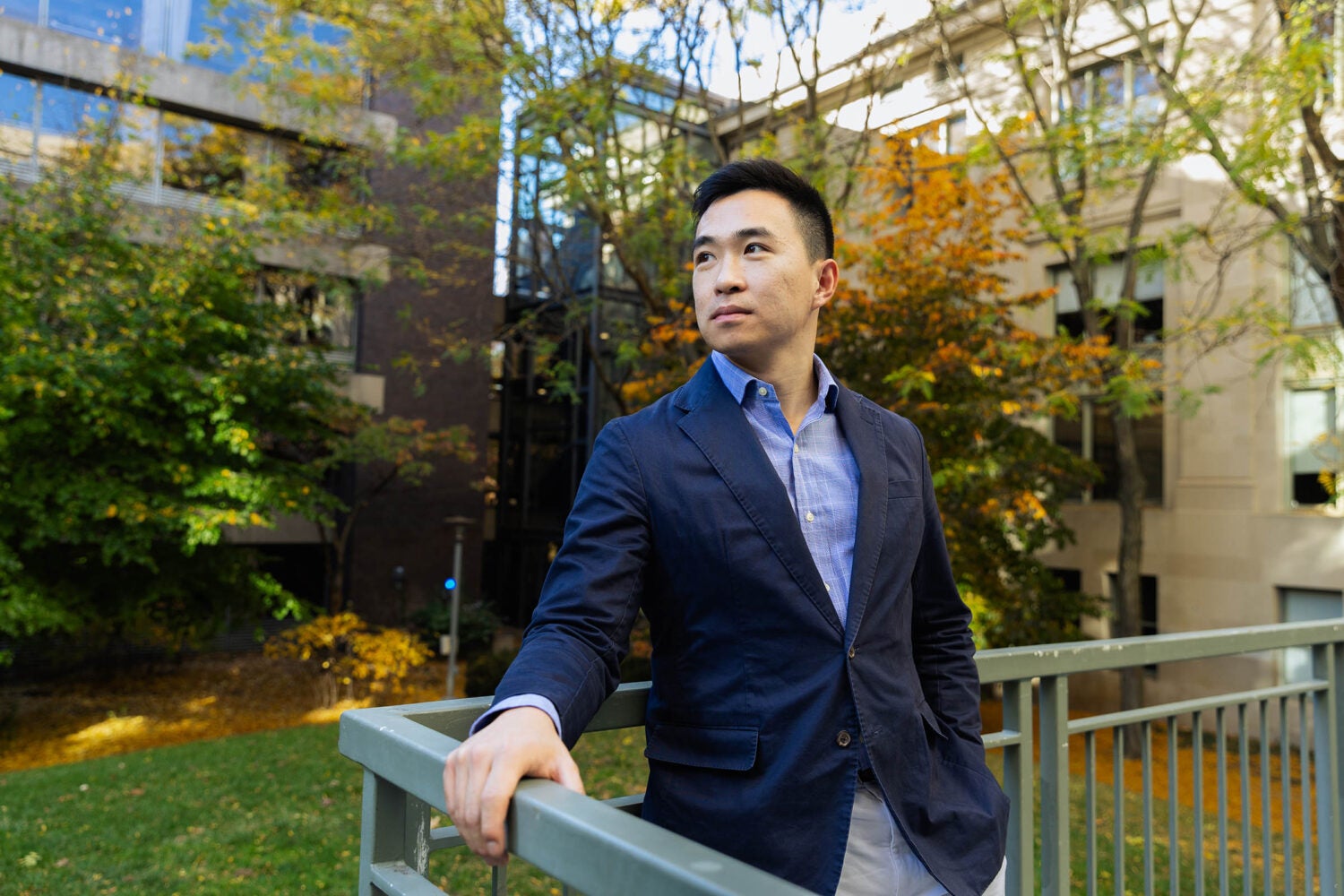From earliest childhood in China, Jonathan Zhangxu ’26 was taught by the government that religion of any sort was nothing more than superstition. In Xinjiang, an autonomous northwest region where he grew up, the large Muslim population of Uyghurs were persecuted by the government. Christianity was only tolerated in government-sanctioned churches. Those who worshipped in “underground” churches faced serious sanctions.
So Zhangxu was “quite shocked,” he said, when his best friend in middle school revealed that he and his mother were Christians. Zhangxu got hold of a Bible, planning to persuade his friend it was nonsense. Instead, as they debated religious faith, “I came to see the power of Christianity”.
Under Zhangxu’s influence, both of his parents also became Christians. His mother was baptized in a government-sanctioned church, his father in an underground church. Zhangxu wasn’t baptized in China at all, believing it was too dangerous. Plainclothes police lived in their building to keep tabs on them, media was controlled, and there were severe limits on internet access to try to squelch government opposition. His friend’s mother was sent to a forced-labor camp after she attempted to send photos of nearby camps to a Christian friend in Southern China.
Fortunately for Zhangxu, his pastor had connections with Gordon College, a private Christian college in Wenham, Massachusetts. With his parents’ support, Zhangxu left China in 2013 and enrolled in Gordon at age 17. “My English was horrible,” but “going to a Christian college was so amazing. People were so kind,” he said. “They helped me ease into American society.”
One friend took Zhangxu home with him to Iowa during Christmas breaks, and professors invited him over for Thanksgivings. On Christmas Day in 2014, he was finally baptized, at Park Street Congregational Church in Downtown Boston, an evangelical church founded in 1809.
Zhangxu was eager to become an American, and from a Korean classmate he learned about a U.S. military recruitment program, Military Accessions Vital to the National Interest (MAVNI), by which non-citizens could achieve citizenship by serving in the armed forces (MAVNI was developed by Margaret Stock ’92, M.P.P. ’01, a U.S. Army retired lieutenant colonel and immigration law expert). Applicants were required to have lived in the United States for two years, so Zhangxu taped a poster about MAVNI onto his desktop computer, and as soon as he reached his two-year anniversary, he went to the military recruiting office in Peabody, Massachusetts and enlisted in the Army Reserves.
His timing was fortunate: He entered the program just months before it was shut down, in late 2016. “I was such a lucky beneficiary,” he said. “I think it was a miracle for me.”
In May 2016, at the end of his sophomore year, he shipped out to Fort Sill, Oklahoma, for three months of basic training. Serving in the military was life-changing. Not only did it enable him to become a citizen, but he was exposed to a wide diversity of people from all walks of life who created a strong community based on common purpose.
“When I first came to America, I was absorbed into this Christian bubble, with people from similar backgrounds socioeconomically, and similar values. But when I was in basic training, I came to see people from all over the country who did not necessarily have the privilege to go to college,” he said. “A lot of people join the military not necessarily to serve their country but because it’s the best option they have.”


His best friend in basic training had had a child at the age of 14, and later, when Zhangxu became an active-duty Army officer, one of his soldiers, from Kentucky, used swear words whenever he described his own father, who had 16 children from different wives. “But he was one of the best, most responsible soldiers I’ve run into,” Zhangxu recalled. He also had a friend who graduated from Princeton, whose parents were both Army colonels. “I think that’s a recurring theme about the military, which is you get to see people from a wide range of backgrounds.”
In the military, he found freedom of thought and speech that would surprise many civilians, he said. Though his English was still shaky when he enlisted and he was from an unusual background, Zhangxu was fully absorbed in his unit. Soldiers of all political persuasions felt free to discuss their points of view in a spirited yet respectful way that he hasn’t found elsewhere.
“I don’t see in law school that kind of conversation, where in the military you can just talk to each other. I could just be who I am, and the friends came along. My sergeants would bring me under their wing as if I were one of their own. People could just share and be themselves. I thought that was very amazing about the military.”
On the final day of basic, Zhangxu and about 25 other fellow soldiers in the MAVNI program were administered the oath of citizenship, in a ceremony whose memory he cherishes. “We swore to uphold the Constitution of the U.S., and I remember shouting out that phrase, I was so happy,” said Zhangxu, who was a dental medic during his four years in the Reserves.
After graduating with honors from Gordon College with a degree in political science and serving as a legislative aide in the Massachusetts State Senate, he decided to become active-duty Army. After graduating from Officer Candidate School in Ft. Benning, Georgia, he was commissioned as a lieutenant and became an engineer. During his four-year stint in the Army, he was an executive officer for Delta Company, overseeing the training and commissions of more than 200 Army officers. He was selected as the investigating officer to probe two financial liability incidents totaling over $1 million and two sexual-harassment claims. He also led a combat-engineer platoon, where he was responsible for the combat readiness of 32 soldiers.
After witnessing the all-controlling government in China, including its human rights abuses against ethnic and religious minorities, he is deeply committed to democracy in the United States. “When I was in the military, it was interesting because I, more than my peers, understood the mission of the American military and the necessity of America having a strong military system.”
His experiences growing up in China also influenced him to become a lawyer — he regards the American legal system as the best in the world — and he enrolled at Boston College Law School. He was in the top 5 percent of his first-year section academically, then transferred to Harvard for his second year. (The cost of his education is fully covered by the G.I. Bill.) It was as a student at Gordon College that he met his wife, Michelle Zhangxu, who was also a Christian in China. Today she is a first-year student at Boston College Law School. The couple plan to settle in Boston. This year Zhangxu, as a clinical student in the Judicial Process in Trial Courts Clinic, is a judicial intern at the Massachusetts Supreme Judicial Court for Justice Serge Georges Jr. Zhangxu is focusing on a career in commercial litigation.
His Christianity is very important to him, and he and his wife attend the Fellowship Bible Church in Burlington. While he embraces his new country, he sees a lot of ways in which it can improve, including in addressing poverty. “I feel I’m at the right place to raise that awareness,” Zhangxu said. At Harvard Law School, “You get to see the wealth of things that a law degree can do.”
Want to stay up to date with Harvard Law Today? Sign up for our weekly newsletter.
